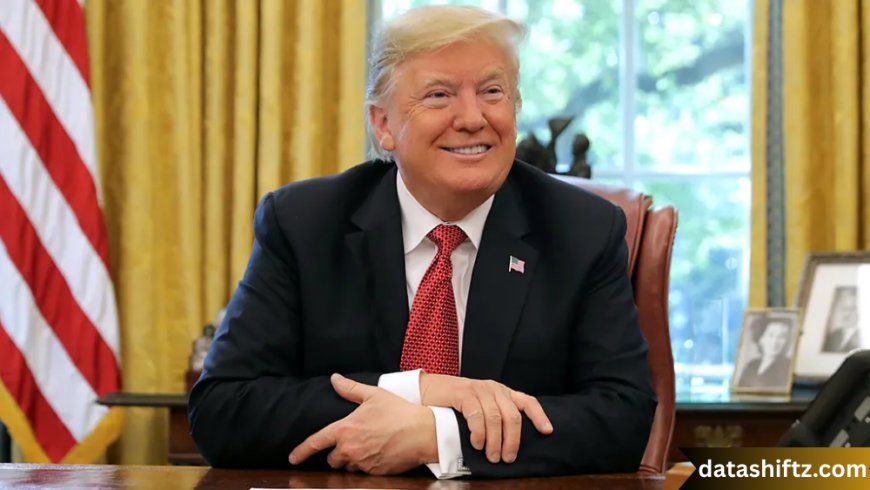Donald Trump & U.S. Intelligence: A Complex Dance of National Security, Controversy, and Strategy

Introduction
The relationship between Donald Trump and U.S. intelligence institutions has been fraught with tension, political maneuvering, and ideological clashes. From the controversies surrounding the handling and disclosure of classified information, to disputed intelligence on foreign threats, to allegations of politicized leaks, Trump’s tenure has continuously thrust national security issues into the spotlight.
This article navigates major episodes that define this fraught relationship—examining Trump’s intelligence disclosures, the Russia-related investigations, his responses to assessments like those concerning Iran’s nuclear capability, and allegations regarding the leaking of intelligence for political purposes. Understanding this dynamic is essential for grasping the broader implications for U.S. credibility, policymaking, and institutional integrity.
Classified Disclosures and Trump’s Handling of Intelligence
Oval Office Revelations
One of the most striking episodes occurred on May 10, 2017, when President Trump disclosed highly classified intelligence to Russian officials during a meeting in the Oval Office. The information, based on a U.S. ally’s intelligence on an Islamic State plan, was detailed enough that it required the extraction of a covert human source due to exposure risks.
Ongoing Concerns Post–Presidency
Beyond the presidency, Trump’s handling of classified materials remained contentious. Reports cite lax security practices at Mar-a-Lago—allowing uncontrolled access to the premises—and the retention of classified documents after leaving office, raising red flags about procedural compliance.
Intelligence Controversies & Investigations—Russia, the Steele Dossier, and Iran
The Crossfire Hurricane and Mueller Investigation
In July 2016, the FBI initiated Crossfire Hurricane, investigating ties between Trump’s campaign and Russian interference in the election. The probe centered on materials provided by campaign adviser George Papadopoulos, including claims that the Russians had damaging information on Hillary Clinton. Trump himself was not personally under investigation until later, when the firing of FBI Director Comey triggered suspicions of obstruction.
The Steele Dossier & Its Fallout
The Steele dossier—an opposition research report containing unverified claims about Trump’s alleged collusion with Russia—remained deeply controversial. While some aspects were corroborated (e.g., Russia’s intent to influence the election), many of its more sensational allegations are considered unverified or "discredited." Intelligence agencies treated it with caution; it was not incorporated into the formal Intelligence Community Assessment on election interference.
Iran Nuclear Claims vs. Intelligence Reports
More recently, June 2025 reports highlight concerns that Trump might have ignored intelligence assessments indicating Iran does not possess nuclear weapons. Instead, he aligned publicly with Israeli Prime Minister Netanyahu's contrary position—drawing parallels to the flawed intelligence leading to the Iraq War.
Alleged Intel Leaks from Inside U.S. Institutions
Another flashpoint: a whistleblower claimed that Senator Adam Schiff authorized the leaking of classified intelligence to discredit Trump during the Russiagate era. The whistleblower alleged these leaks were politically motivated and not legally investigated due to constitutional protections.
Moreover, a House intelligence report has accused ex-CIA Director John Brennan of overruling veteran analysts to portray that Putin favored Trump in the 2016 election, drawing criticism and accusations of politicizing intelligence.
The Broader Impact—Trust, Governance & Institutional Integrity
Erosion of Analyst Confidence
Observers in outlets like Foreign Policy warn that when intelligence assessments are routinely denigrated or politicized, analysts may become self-censoring—diminishing candid reporting on threats like Russia. The result is a chilling effect that could leave leaders ill-prepared for emerging challenges.
Institutional Trust and Global Standing
Frequent high-profile leaks, selective use of intelligence, and public dismissals of agency findings all undermine confidence—both domestically and among international allies. Restoring the credibility of U.S. intelligence will require tangible commitments to apolitical, fact-based analysis.
Key Episodes in Trump–Intelligence Relations
| Event / Episode | Description | Implications |
|---|---|---|
| 2017 Oval Office Disclosure | Trump shared classified intel with Russia—drawing widespread criticism | Undermined source protection and diplomatic trust |
| Retention of Classified Docs Post-Presidency | Trump stored sensitive materials at Mar-a-Lago | Raised questions about security protocols |
| Crossfire Hurricane (FBI 2016–17) | Investigation into campaign contacts with Russia | Spawned Mueller probe with mixed findings |
| Steele Dossier Controversy | Report of unverified allegations about Trump's collusion | Highlighted risks of political influence in intelligence |
| Ignoring Iran Intel Reports (2025) | Trump reportedly disregarded assessments saying Iran lacks nukes | Echoes of Iraq-era intelligence misuse |
| Alleged Schiff Leaks | Whistleblower claims of intel leaks to harm Trump politically | Calls into question Congressional ethics and oversight |
| Brennan Intelligence Dispute | Report suggests CIA head ignored dissenting analysts in favor of political narrative | Raises concerns about politicizing intelligence |
| Declining Analyst Transparency | Warnings about chilling effects on whistleblowers | Potential erosion of internal agency integrity |
Major Takeaways
-
Repeated handling of classified intel by Trump raised security concerns, both during and after his presidency.
-
Crossfire Hurricane and the Mueller investigation exposed serious inquiries but concluded no direct conspiracy.
-
Steele dossier remains controversial—partially corroborated, mostly unverified, and a cautionary tale about intelligence credibility.
-
Disregarding vetted intelligence, such as regarding Iran’s nuclear capability, risks decision-making under partisan influence.
-
Allegations of intel leaks from within oversight bodies, like Schiff’s committee, highlight partisan misuse of sensitive material.
-
Trump’s confrontations with intelligence institutions dented trust and may demoralize analysts reluctant to voice difficult truths.
-
Institutional credibility is fragile, requiring renewed commitment to apolitical, transparent intelligence operations.
Conclusion
Donald Trump’s interactions with the U.S. intelligence community have been unpredictable, controversial, and impactful. Whether through public disclosures of classified information, skeptical rejection of vetted assessments, or the use of intelligence as political weapons, his tenure and post-presidency actions have tested the resilience and integrity of national security institutions.
Restoring trust in U.S. intelligence will require clear separation from partisan influences, careful adherence to protocols, and visible safeguards to ensure that analysts can operate without fear of political reprisal. As the world faces fresh geopolitical challenges, the ability of American institutions to provide honest, fact-based intelligence remains essential for both governance and security.






























